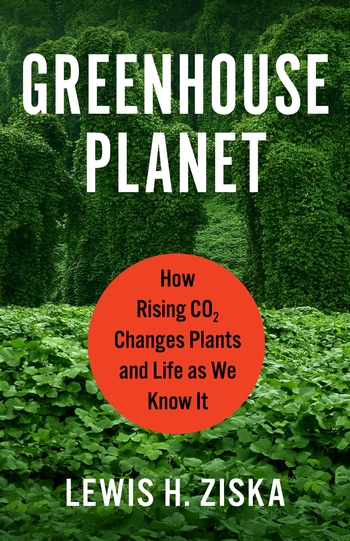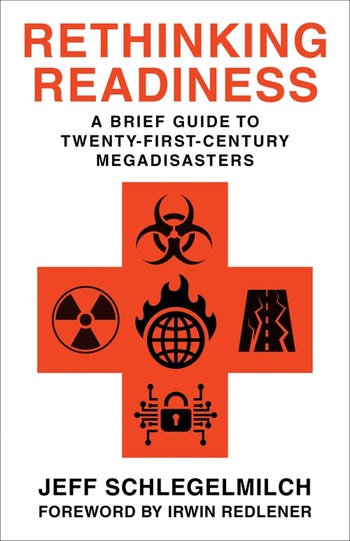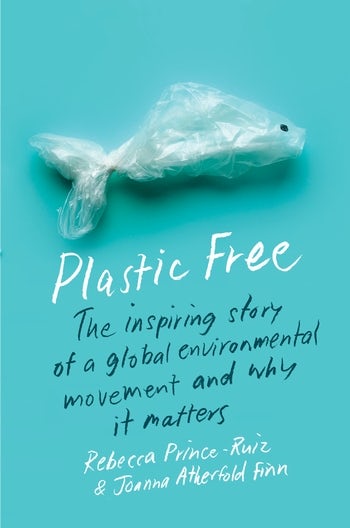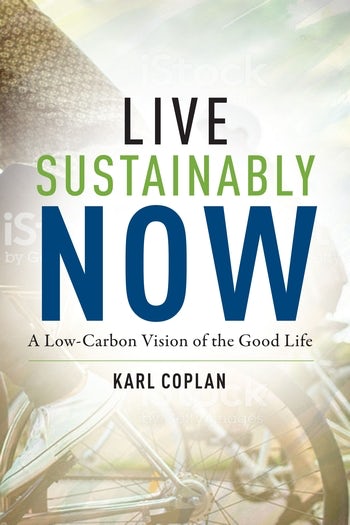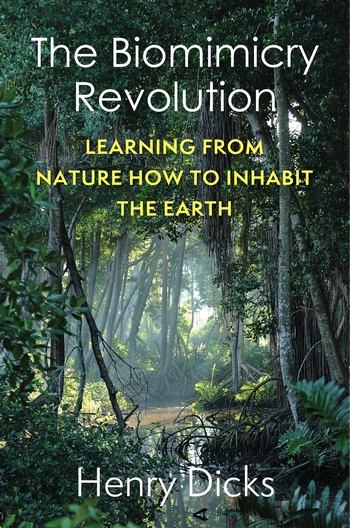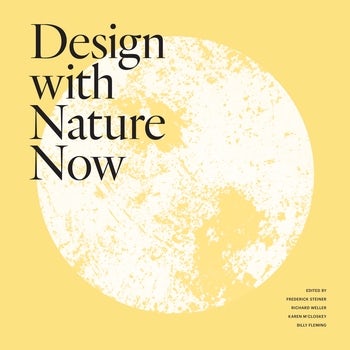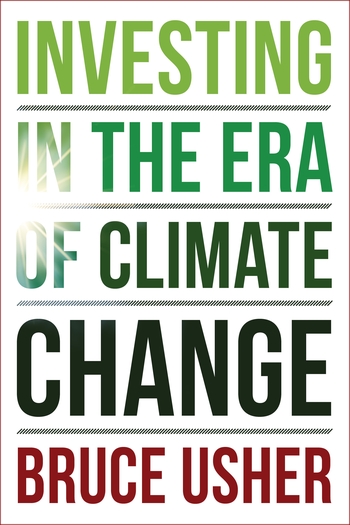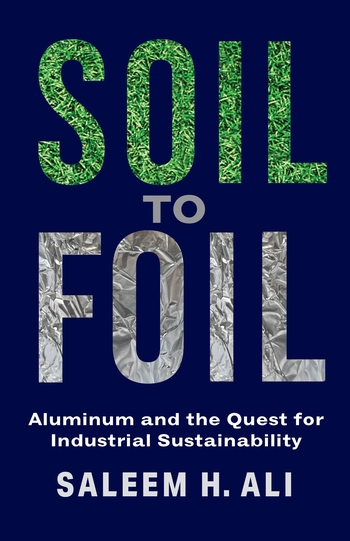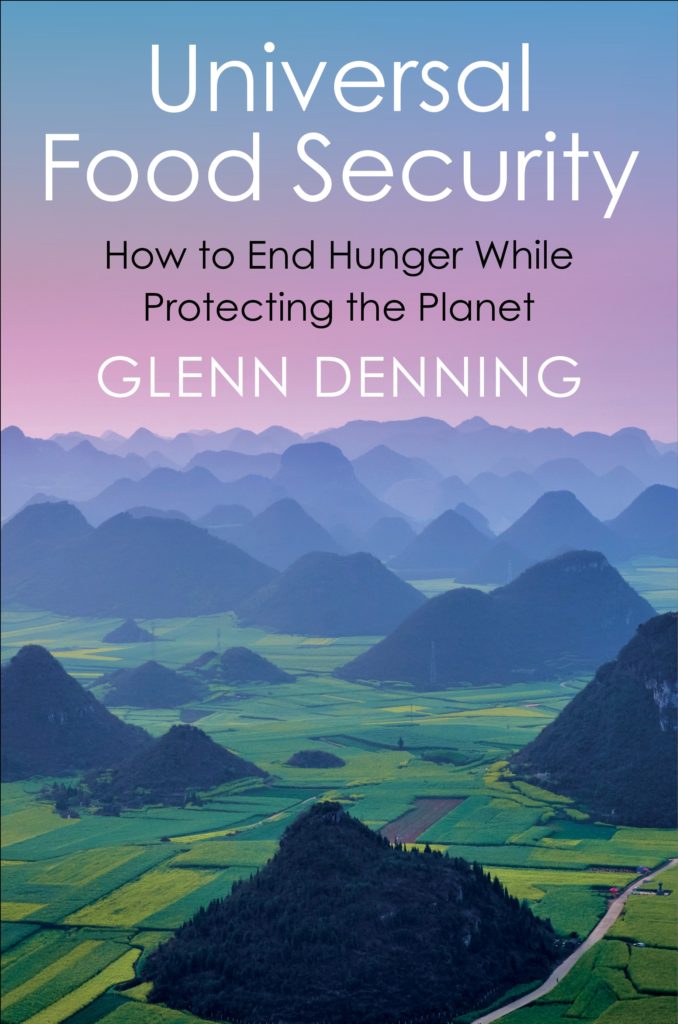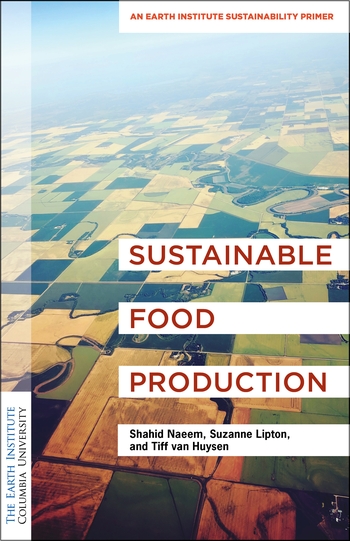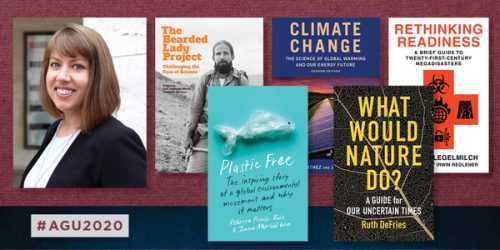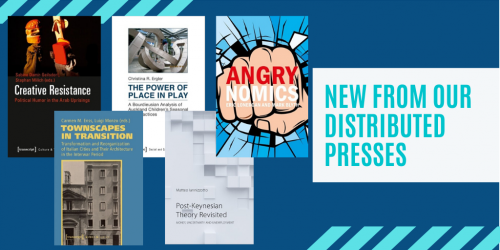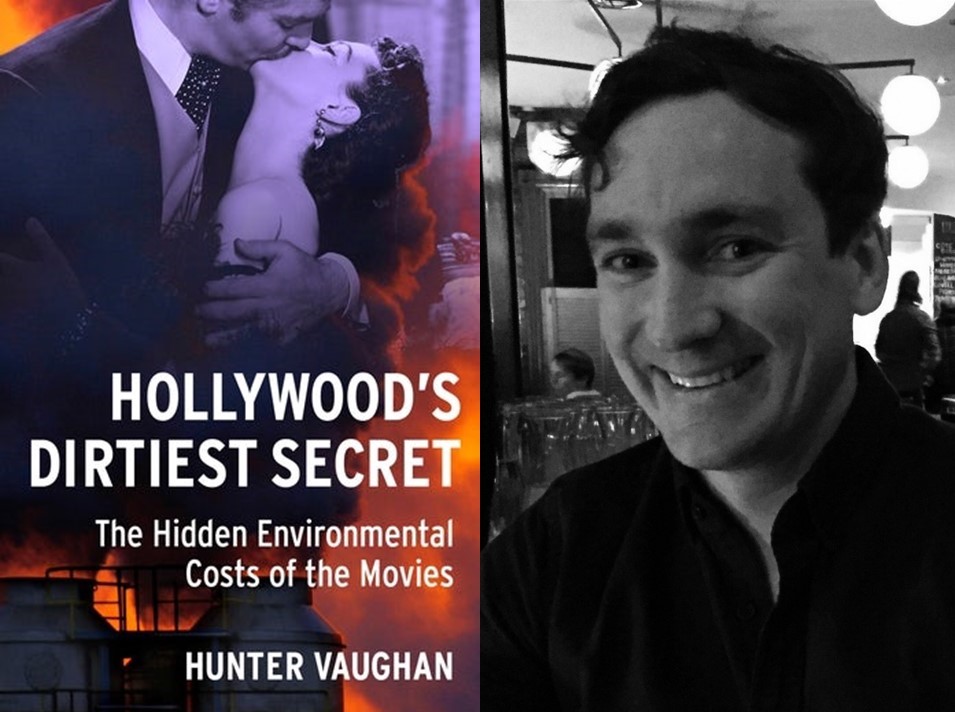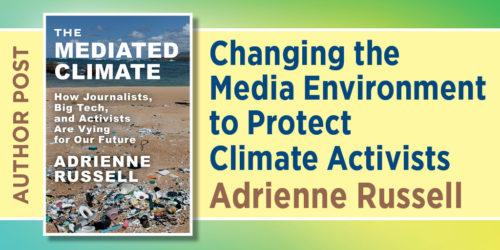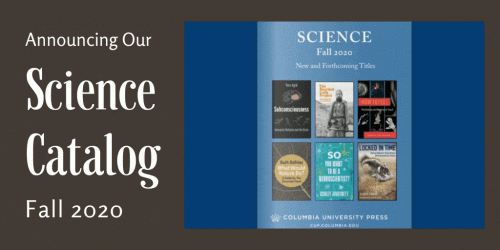25 Must-Read Books for Earth Month 2023

During Earth Month, people worldwide unite to awaken our environmental consciousness and raise awareness of our planet’s health. The books on this list speak to the challenges we face today, including climate change, natural disasters, climate resilience, living and conducting business sustainably and equitably, learning from nature, environmental conflict, food security, and more.
On Climate Change, Resilience, and Activism
The Octopus in the Parking Garage
A Call for Climate Resilience
Rob Verchick
Engaging and accessible for nonexpert concerned citizens, The Octopus in the Parking Garage empowers readers to face the climate crisis and shows what we can do to adapt and thrive. Taking the reader on a journey into the field—paddling through Louisiana’s bayous, hiking in one of the last refuges of Joshua trees in the Mojave Desert, and diving off Key Largo with citizen scientists working to restore coral reefs—Rob Verchick shows what resilience looks like on the ground, from early humans on the savannas to today’s shop owners and city planners. Read this interview in which Rob Verchick stresses the importance of reliance-based efforts.
Climate Travels
How Ecotourism Changes Mindsets and Motivates Action
Michael M. Gunter Jr.
In Climate Travels, Michael M. Gunter Jr. takes readers around the United States to bear witness to the many faces of the climate crisis. Emphasizing how travel can help bring the reality of climate change home, these vignettes explore the consequences for people and communities from sea level rise in Virginia to imperiled ecosystems in national parks and more. Through it all, Gunter finds inspiring initiatives to mitigate and adapt to these threats, offering readers a message of hope about how to take action on the local level. Check out these tips on how to become advocates for climate change mitigation.
Greenhouse Planet
How Rising CO2 Changes Plants and Life as We Know It
Lewis H. Ziska
Detailing essential science with wit and panache, Greenhouse Planet is an indispensable book for all readers interested in the ripple effects of increasing CO2. Veteran plant biologist Lewis H. Ziska reveals the stakes of increased CO2 for plants, people, and ecosystems—from crop yields to seasonal allergies and from wildfires to biodiversity. He explains the science of how increased CO2 affects various plant species and addresses the politicization and disinformation surrounding these facts. In this piece, Ziska shares some of the unintended consequences of CO2 on less welcome plant life.
The Pivot
Addressing Global Problems Through Local Action
Steve Hamm
Part journal of a plague year and part call to action, The Pivot tells the remarkable story of a collaborative experiment seeking to make the world more sustainable and resilient. Early in the COVID-19 pandemic, a global volunteer collaboration called Pivot Projects was formed to rethink how the world works. In The Pivot, journalist Steve Hamm explores their efforts and shows how their approach provides a model for achieving systemic change. He chronicles the group’s progress along an uncharted path and shows how people with a variety of skills and personalities collaborate to get things done. Watch this interview in which Hamm discusses opportunities to pivot to a more sustainable way of life.
Published by Columbia Books on Architecture and the City and distributed by Columbia University Press.
Aeropolis
Queering Air in Toxicpolluted Worlds
Nerea Calvillo
Aeropolis offers a speculative and interdisciplinary framework to reorient common understandings of air and air pollution as matter “out there.” Nerea Calvillo proposes that we think of air as a city to center its social, cultural, political, and ecological entanglements—to think of air across its many forms: through smog and dust, bodies and breath, pollen and weeds, and from urban design to geopolitics, polluted environments to open data, and parks to aerial infrastructures. She moves away from solutions toward a methodology of “designing-thinking-making” that redirects and connects our understandings of air with ongoing struggles for just futures.
On Disasters and Preparedness
Unnatural Disasters
Why Most Responses to Risk and Climate Change Fail but Some Succeed
Gonzalo Lizarralde
Unnatural Disasters offers a new perspective on our most pressing environmental and social challenges, revealing the gaps between abstract concepts like sustainability, resilience, and innovation and the real-world experiences of people living at risk. Gonzalo Lizarralde explains how the causes of disasters are not natural but all too human: inequality, segregation, marginalization, colonialism, neoliberalism, racism, and unrestrained capitalism. He reveals how disasters have become both the causes and consequences of today’s most urgent challenges, and he also proposes achievable solutions to save a planet at risk, emphasizing the power citizens hold to change the current state of affairs. Read an excerpt from the book.
Rethinking Readiness
A Brief Guide to Twenty-First-Century Megadisasters
Jeff Schlegelmilch
Foreword by Irwin Redlener
Rethinking Readiness offers an expert introduction to human-made threats and vulnerabilities, focusing on opportunities to reimagine how we approach disaster preparedness. Jeff Schlegelmilch identifies and explores the world’s most critical threats, detailing the dangers of pandemics, climate change, infrastructure collapse, cyberattacks, and nuclear conflict. The book highlights the potential for building resilient, adaptable, and sustainable systems to better respond to and recover from future crises. Read more about this new approach to disaster preparedness.
On Living Sustainably
Plastic Free
The Inspiring Story of a Global Environmental Movement and Why It Matters
Rebecca Prince-Ruiz and Joanna Atherfold Finn
Interweaving interviews from participants, activists, and experts, Plastic Free tells the story of how ordinary people have created change in their homes, communities, workplaces, schools, businesses, and beyond. This book offers hope for the future through the stories of those who have taken on what looked like an insurmountable challenge and succeeded in innovative and practical ways, one step—and one piece of plastic—at a time. Check out these seven steps you can take to begin living plastic-free.
Live Sustainably Now
A Low-Carbon Vision of the Good Life
Karl Coplan
In Live Sustainably Now, Karl Coplan shares his personal journey of attempting to cut back on carbon without giving up the amenities of a suburban middle-class lifestyle. He explains how to set a personal carbon cap and measure your actual footprint, with his own results detailed in monthly diary entries. Presenting the pros and cons of different energy, transportation, and lifestyle options, he shows that there does not have to be a trade-off between the ethical obligation to maintain a sustainable carbon footprint and the belief that life should be fulfilling and fun. Read this piece to learn how to enact environmental stewardship by acting locally.
On Learning from and Working with Nature
The Biomimicry Revolution
Learning from Nature How to Inhabit the Earth
Henry Dicks
In The Biomimicry Revolution, Henry Dicks argues that biomimicry—defined as the application and adaptation of strategies found in nature to the development of artificial products and systems—can serve as the basis for a new environmental philosophy. This philosophy could radically alters how we understand and relate to the natural world. By showing how we can imitate, emulate, and learn from nature, biomimicry points us toward a genuinely sustainable way of inhabiting the earth. Dicks presents a sweeping reconception of what philosophy can be and offers a powerful new vision of terrestrial existence. Check out this piece about how nature provides principles to guide our actions in our changing world.
What Would Nature Do?
A Guide for Our Uncertain Times
Ruth DeFries
Exploring the lessons that life on Earth can teach us about coping with complexity, What Would Nature Do? offers timely options for civilization to reorganize for a safe and prosperous future. Ruth DeFries argues that a surprising set of time-tested strategies from the natural world can help humanity weather crises such as raging fires, ravaging storms, political upheavals, financial collapses, and deadly pandemics. With humility and willingness to apply nature’s experience to our human-constructed world, DeFries demonstrates how we can withstand uncertain and perilous times. Read this interview with the author to learn more about her theory.
Design with Nature Now
Edited by Frederick Steiner, Richard Weller, Karen M’Closkey, and Billy Fleming
Written in clear language and featuring vivid color images, Design with Nature Now outlines Ian McHarg’s enduring influence on contemporary designers, architects, and planners as they contend with climate change and other twenty-first-century challenges. Named a best book of 2019 by the American Society of Landscape Architects, this book showcases some of the most advanced ecological design projects in the world today. In this piece, volume editor Frederick Steiner speaks to the ecological lessons that came out of the COVID-19 pandemic.
On Climate Change, Business, and Economics
Sustainable
Moving Beyond ESG to Impact Investing
Terrence Keeley
Foreword by Larry Fink
In Sustainable, Terrence Keeley offers an insider’s look at the promises, prospects, and perils of environmental, social, and governance (ESG) investing. A veteran of the financial industry, Keeley argues that many ESG advocates have been overly optimistic about what it can accomplish. He provides comprehensive solutions that would promote more inclusive, sustainable growth. Identifying dozens of alternative “impact investing” strategies that could generate true double bottom lines, Keeley highlights promising civic organizations with proven methodologies for achieving widely shared benefits at scale. Read about this insider’s deconstruction of ESG investing in Law & Liberty.
Investing in the Era of Climate Change
Bruce Usher
Companies that reduce greenhouse-gas emissions will create great wealth and, more importantly, provide a lifeline for humanity. In this book, Bruce Usher offers an indispensable guide to the risks and opportunities for investors as the world faces climate change. He explores the role that investment plays in reducing emissions to net zero by 2050, detailing how to finance the winners and avoid the losers in a transforming global economy. Usher sets out a practical and actionable plan for investors that can alter the course of climate change. To learn more, watch this episode of Keen On featuring Andrew Keen and Bruce Usher and their conversation about the book.
The Green New Deal and the Future of Work
Edited by Craig Calhoun and Benjamin Y. Fong
The promise of the Green New Deal is to tackle the threat of climate change through the empowerment of working people and the strengthening of democracy. This book brings together leading experts to explore the possibilities of the Green New Deal, emphasizing the future of work. Together, the contributors examine transformations that are already underway and put forth bold proposals that can provide jobs and reduce carbon consumption, laboring toward the goal of building a world that is sustainable both economically and ecologically. Read the book’s introduction.
Soil to Foil
Aluminum and the Quest for Industrial Sustainability
Saleem H. Ali
Soil to Foil tells the extraordinary story of aluminum, offering compelling portraits of the scientists and innovators who discovered new uses for this remarkable element. Saleem H. Ali follows aluminum’s path along the supply chain, from extraction to production, consumption to recycling. He explores the ecological damage at mine sites and visits affected communities seeking to restore the land. Ranging from chemistry and geoscience to engineering and industrial design, this book conveys that the story of aluminum’s use and misuse helps us rethink how to manage the resources of our planet sustainably. You can read an analysis at the Foreign Policy Research Institute by the author on whether an ecological path to peace is possible in Ukraine.
What Really Counts
The Case for a Sustainable and Equitable Economy
Ronald Colman
What Really Counts is the firsthand story of the promises and challenges of accounting for social, economic, and environmental benefits and costs. Ronald Colman recounts his two decades of working with three governments to adopt measures that more accurately and comprehensively assess true progress. Reflecting on both successes and failures, he considers how to shift policy priorities from a narrow economic-growth agenda toward a future built on sustainability and equity. Read the book’s prologue.
Published by Agenda Publishing and distributed by Columbia University Press.
Supercharge Me
Net Zero Faster
Eric Lonergan and Corinne Sawers
In Supercharge Me, Eric Lonergan and Corinne Sawers reframe the climate crisis as an opportunity by introducing practical ideas for change that will embolden activists and reinvigorate the disheartened. Their proposals are grounded in relentless realism about how governments, businesses, and individuals behave, and they draw lessons from positive incentives and smart regulations. Watch an interview with Eric Lonergan and Corrine Sawers on Inside Ideas.
On Environmental Conflict
Managing Environmental Conflict
An Earth Institute Sustainability Primer
Joshua D. Fisher
Conflicts frequently arise over environmental issues such as land use, natural resource management, and laws and regulations that emerge from stakeholders’ diverging interests and values. Managing Environmental Conflict synthesizes knowledge, methods, and practices spanning consensus building, collaborative governance, complex adaptive systems science, environmental conflict resolution, and environmental peacebuilding. Joshua D. Fisher explains the core concepts of collaborative conflict management and presents a clear, practical, and implementable framework for understanding and responding to environmental disputes. Be sure to check out this author’s Q&A with Columbia News.
Published by Fernwood Publishing and distributed by Columbia University Press.
To Be a Water Protector
The Rise of the Wiindigoo Slayers
Winona LaDuke
Winona LaDuke is a leader in cultural-based sustainable development strategies, renewable energy, sustainable food systems, and Indigenous rights. In To Be a Water Protector, she details global Indigenous-led opposition to the enslavement and exploitation of the land and water. This is an expansive, provocative engagement with issues central to LaDuke’s many years of activism. She discusses several elements of a new Green economy and outlines the lessons we can take from activists outside the United States and Canada.
For Students, Educators, and Practitioners
Climate Change Adaptation
An Earth Institute Sustainability Primer
Lisa Dale
This book offers a concise overview of climate adaptation governance. In clear, accessible language, Lisa Dale describes key strategies that governments, communities, and the private sector are now deploying in response to climate change. She presents the theory and practices that underlie climate adaptation efforts at local and global levels, providing illuminating case studies that foreground the problems facing developing countries. Written for a wide audience, Climate Change Adaptation is an invaluable introduction for all readers interested in how societies can meet the challenges of an altered climate. Read Dale’s discussion of her book in this Q&A with Columbia News.
Universal Food Security
How to End Hunger While Protecting the Planet
Glenn Denning
From production to consumption, food systems must be sustainable, halting environmental degradation and even repairing the damage we have previously done. Universal Food Security provides an accessible guide to making healthy diets from sustainable food systems available to all. Glenn Denning lays out key priorities—sustainable intensification, market infrastructure, postharvest stewardship, healthy diets, and social protection—and presents how to achieve food systems transformation. This book is an ideal handbook for students and practitioners looking to transform our food systems at all levels. Listen to this podcast episode for Glenn Denning and Jeffrey Sachs’s discussion on the choices of agricultural technology, food policy, dietary choices, and public institutions needed to achieve global food security with environmental sustainability
Sustainable Food Production
An Earth Institute Sustainability Primer
Shahid Naeem, Suzanne Lipton, and Tiff van Huysen
Sustainable Food Production is a compelling guide to how we can improve our ability to feed each other today and preserve the ability of our planet to do so tomorrow. This concise text offers an overview of the key issues in sustainable food production for all readers interested in the ecology and environmental impacts of agriculture. It details the ecological foundations of farming and food systems, showing how knowledge from the natural and social sciences can be used to create sustainable alternatives to the industrial production methods used today. Read this interview with Shahid Naeem about modern food systems and the outlook for reforms on the State of the Planet.
Environmentally Sustainable Growth
A Pragmatic Approach
Steven Cohen
In Environmentally Sustainable Growth, Steven Cohen explores the causes of environmental degradation and examines what sustainability looks like in practice. This book brings together insights from many disciplines, spanning the latest scholarship and practical experience. Useful for students and courses, this book is informative for practitioners, managers, analysts, activists, and scholars whose work incorporates environmental sustainability. Watch this video of Steve Cohen explaining sustainability management lessons from and for New York City, America, and the planet.
Published by Agenda Publishing and distributed by Columbia University Press.
The Anthropocene
101 Questions and Answers for Understanding the Human Impact on the Global
B. L. Turner II
The Anthropocene is an authoritative reference for students of geography, the environment, and sustainability. Through a series of 101 interconnected questions and answers spanning ten thematic sections, this book provides a comprehensive survey of humankind’s impact on the global environment from the Late Stone Age to the present day.
Categories:Earth DayEnvironmental StudiesReading List
Tags:AeropolisB. L. Turner IIBenjamin Y. FongBilly FlemingBruce UsherClimate Change AdaptationClimate TravelsCorinne SawersCraig CalhounDesign With Nature NowEarth MonthEnvironmentally Sustainable GrowthEric LonerganFrederick SteinerGlenn DenningGonzalo LizarraldeGreenhouse PlanetHenry DicksInvesting in the Era of Climate ChangeJeff SchlegelmilchJoanna Atherfold FinnJoshua D. FisherKaren M’CloskeyKarl CoplanLewis H. ZiskaLisa DaleLive Sustainably NowManaging Environmental ConflictMichael M. Gunter Jr.Nerea CalvilloPlastic FreeRebecca Prince-RuizRethinking ReadinessRichard WellerRob VerchickRonald ColmanRuth DeFriesSaleem H. AliShahid NaeemSoil to FoilSteve HammSteven CohenSupercharge MeSustainableSustainable Food ProductionSuzanne LiptonTerrence KeeleyThe AnthropoceneThe Biomimicry RevolutionThe Green New Deal and the Future of WorkThe Octopus in the Parking GarageThe PivotTiff van HuysenTo Be A Water ProtectorUniversal Food SecurityUnnatural DisastersWhat Really CountsWhat Would Nature Do?Winona LaDuke



